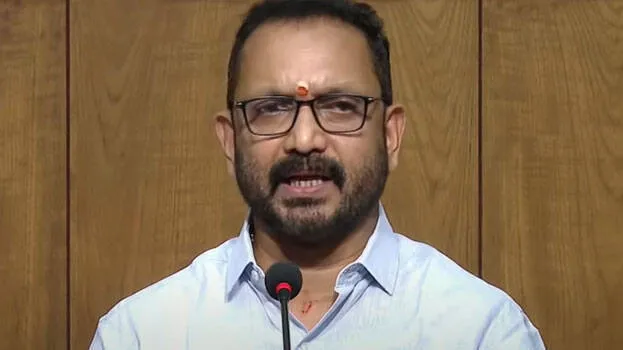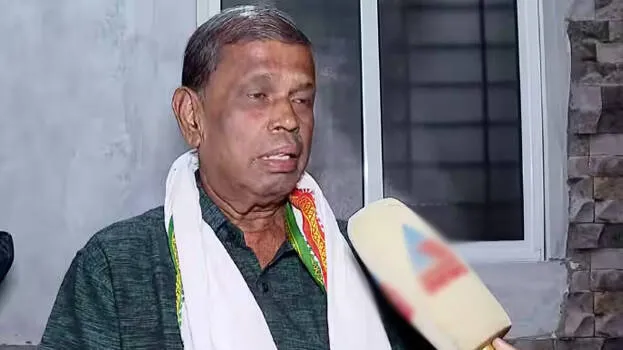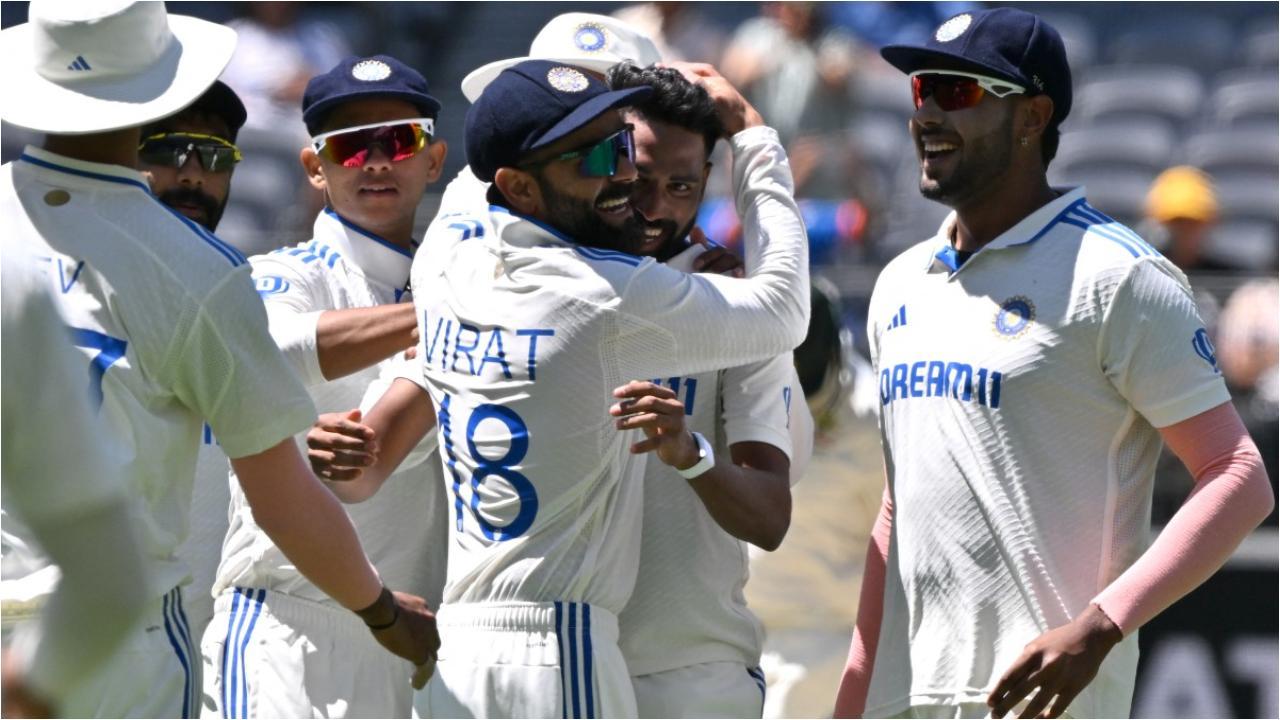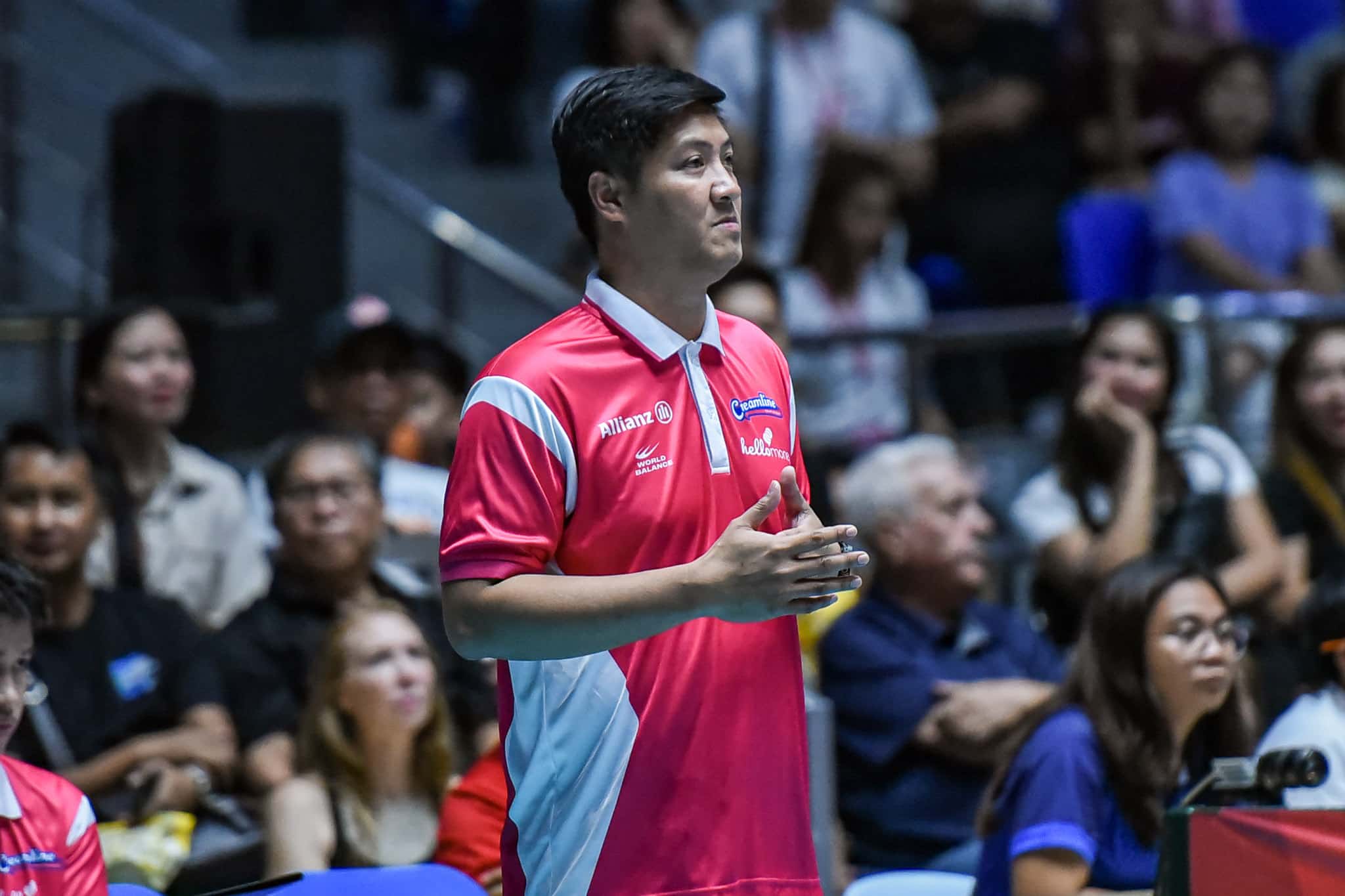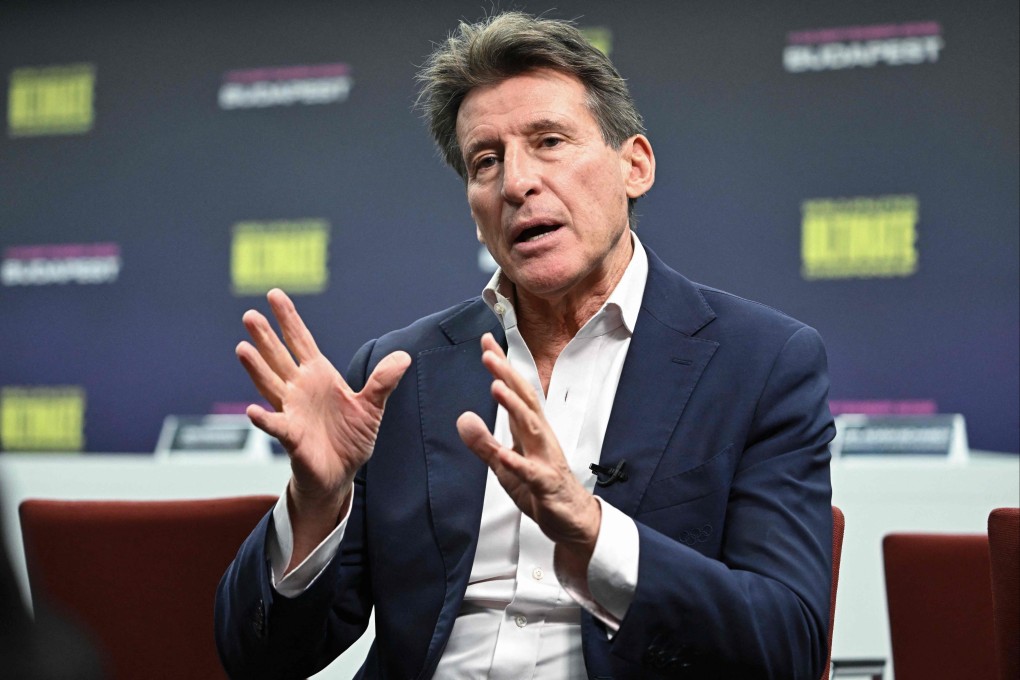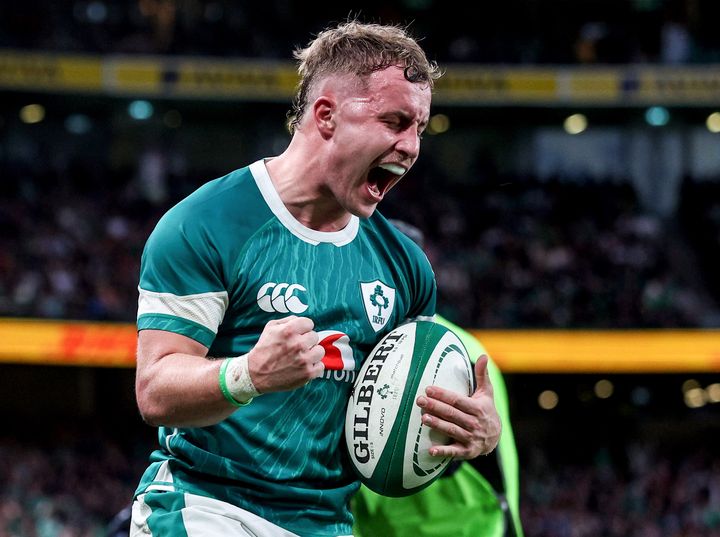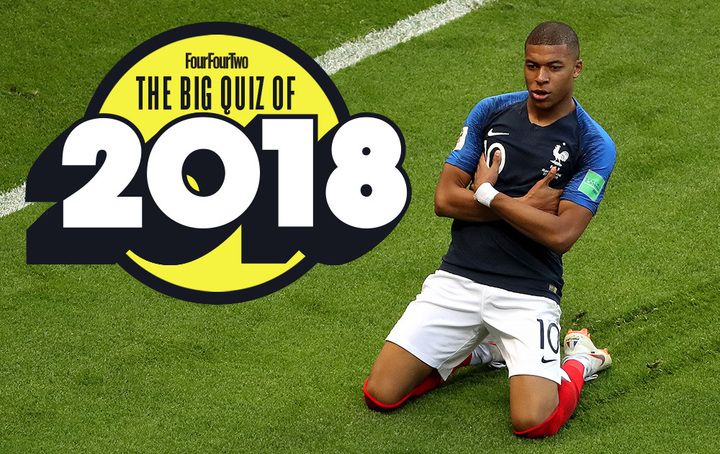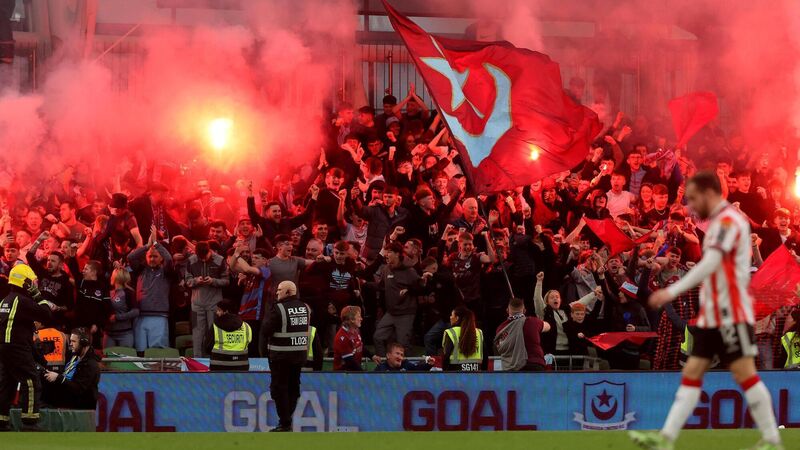
When the numbers are so compelling, it needn't be so extraordinary for the national showpiece to attract a bumper crowd. Last Sunday marked the second successive year for an FAI Cup final attendance record to be broken. Following 12 months on from the biggest-ever turnout of 43,881 was the largest for two non-Dublin clubs at 38,723.
Covid-19's elimination of a crowd for the 2020 final can be traced as a turning point but the trend upwards in popularity probably stems further back to the redevelopment of Lansdowne Road. Prior to the Dublin 4 venue being bulldozed in 2006, spectator numbers struggled to reach the mid-teens of thousands. Hope that the 1990 switch from Dalymount Park to Lansdowne Road would nurture curiosity was premature as the 29,000 present on that sunny Sunday when Bray Wanderers ended the fairytale of non-leaguers St Francis didn't endure.
So low dipped interest levels that Dalymount and Tolka Park were revisited between 1996 and 2002 but only the meeting of Drogheda United and Cork City three years later drew a figure in excess of 20,000. RDS and Tallaght hosted the three finales during the construction phase of Lansdowne before the reopening in 2010 pulled 36,101 through the turnstiles. Sustaining that 40-year peak was a task the FAI couldn't capitalise on, despite keeping ticket prices at €10 and including the Blue Riband in their season ticket package for men's internationals.
Dundalk's duopoly with Cork City, resulting in four successive showdowns between the rivals, hovered around the 25,000 mark until the 2018 version – Stephen Kenny's swansong – marginally surpassed the 30,000 threshold. Different opponents for Dundalk 12 months later, Shamrock Rovers, increased the number by 10 percent and their sixth in a row was behind closed doors due to the pandemic. What's transpired in the four years since is the reinforcement of the occasion as the standout date in the Irish football calendar.
While twinning the women's final on the same day promoted equality, sense eventually decreed that it was worthy of a standalone venue and date. Nowadays the 3pm Sunday crescendo constitutes the epicentre, the day when football fans far and wide converge on the national stadium to celebrate all that's best in the national game. Reunions have become the norm, as the timing of the game affords scope for events before and afterwards.
Naturally, the fanbase of finalists has a major bearing on the attractiveness to punters but the beauty of the fixture is an appeal to the neutral. Hosted within the best football stadium in the country, located centrally with accessible transport links dismisses for one day at least the infrastructural deficits faced by the floating Ireland football supporter. Fears about two finalists from outside of the capital soon dissipated with the figures announced in midweek by the FAI.
Yet the attachment of the word 'gone' to tickets, rather than 'sold' harked back to a previous era when aspiration of attendances rarely translated into stats. Drogheda is officially a town but may upgrade to City status if granted. Rather than a relegation battle in the league instilling a sense of foreboding, their resilience only served to endear Kevin Doherty's side to the locality, for they had no problem offloading their ticket allocation.
Active promotion in the run-up, by players visiting schools and shops in the town, contributed to the affinity and droves drove down the M1 and boarded the commuter trains for their big day out. Derry's reputation as a football-mad City has been intact since they joined the League of Ireland in 1985, their positioning in the north-west and substandard road connection no impediment for travelling masses. That much was evident two years ago when Foyleside emptied for their win over Shelbourne.
Given the backing for both clubs, the addition of the casual fan cohort and diehard neutrals was capable of swelling the numbers. Throw in the 51,700 capacity being reduced from the rows behind perimeter advertising being killed off and the atmosphere was comparable, certainly superior in many cases, to Ireland internationals staged there. An increase in recent years of €25 for an adult ticket hasn't dimmed the appetite.
People paying to watch live home-produced football is a phenomenon that ought to be seized upon. For the first year in history, the watershed of a million attendees was passed in 2024, encompassing men's and women's games, domestic and European. Season tickets for next year's campaign have been unfurled in time for that vital Christmas present market.
Various options are available, but the offering for 18 Premier home matches varies from Sligo Rovers €290 down to Shamrock Rovers with a €235 renewal. Waterford at €275 are just ahead of Cork City's €270 early bird price. Facilities, specifically investment in them primarily by the State, will dictate conditions available to new audiences, but the starting point of an FAI Cup final selling out is within sight.
According to the FAI's manifesto, there's 221,500 registered players and another 80,000 volunteers involved in the game. Enticing a portion to the marquee event of the year isn't a stretch with the most basic of marketing. It should be normalised, not evangelised as something above ordinary.
Final domestic date of the year could have deepest consequences Winter weather has been slow to bite but the only looming topic on the agenda of the FAI's December 5 assembly is a full switch to summer soccer. This brainchild of Ruud Dokter has been resurrected by his successor Marc Canham, recently retitled as Chief Football Officer, and all his powers of persuasion will be required to convince constituents in the grassroots sector to mirror the League of Ireland season format. That, for 20 years, has revolved around a season from February to October, whereas 80% of the game nationwide aligns with the school calendar from September to May.
Pros and cons have been cited since it resurfaced last February in Canham's Football Pathways Plan, a debate that will be settled by a ballot of the 135-strong General Assembly. They'll convene through a combination of in-person format at the Blanchardstown Carlton Hotel and remotely. In advance, Canham and his assistant Shane Robinson will deliver their pitch to the three chambers of the GA, national bodies, amateur and professional, on consecutive evenings next week.
As a rule change, rather than constitutional, a simple majority is needed. Given the existing LOI sector are onside, the outcome will hinge on the remainder and they've been traditionally opposed to the sea change. That the representatives on the board of those groups - amateur, underage and schools – have already endorsed the move has raised eyebrows.
Time will tell whether they were turkeys voting for Christmas. Split erupts over Uefa handouts Canvassing fever is in full flow ahead of the General Election on November 29 so no surprise to see Fianna Fáil's promise a betting tax increase and creation of a Next Generation Fund in their manifesto. The latter is the mechanism under which state funding is to be funnelled into the national league academy system, a sector looked upon to produce Ireland senior team prospects in the post-Brexit era.
It had been hoped that firm commitments would have been set by now, either in the Budget or the Memorandum of Understanding successor deal hatched last week, but nothing concrete is due under this Government cycle. In the meantime, rancour continues over the disbursal of Uefa's enhanced €4m solidarity pot. Under the proposals, Premier clubs are to see their payout snowball to €350,000 but the cut to First Division clubs drop from €65,000 to €45,000.
This was a source of contention during a meeting the FAI called for their academy directors prior to Sunday's FAI Cup final, second tier outfits arguing the chasm is tantamount to creating a two-speed system. It's particularly pertinent given the bluesky notion of expanding the number of underage squads, both for boys and girls, was broached. A source of interest also centres on what FAI oversight will apply when it comes to how clubs spend their Uefa largesse.
Email: [email protected].




